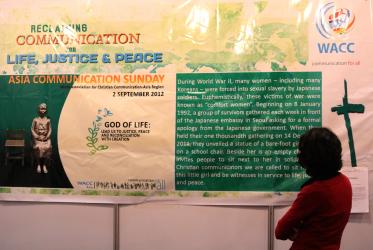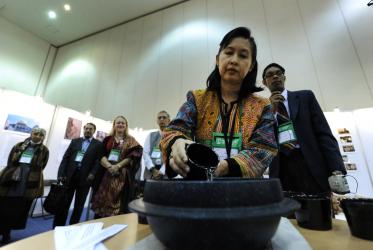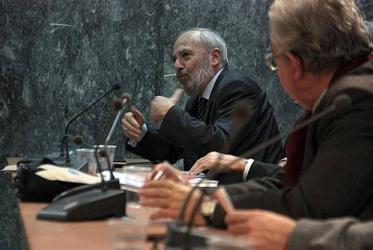Displaying 141 - 160 of 332
Hearing many voices for justice and peace
07 November 2013
Religious leaders highlight significance of water at WCC assembly
04 November 2013
Dialogue on politicization of religion and rights of minorities
17 September 2013
Working for climate justice is an ethical and spiritual imperative
27 February 2013
Petros Vassiliadis’ theological work honoured in Greece
21 January 2013





